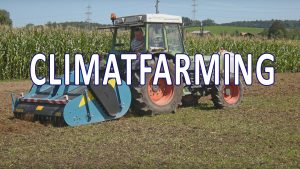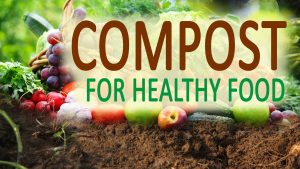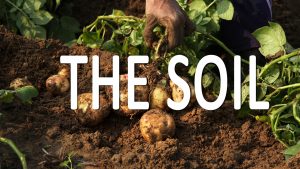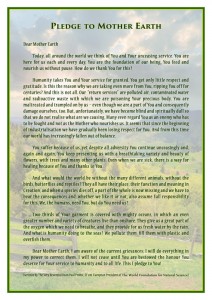Good healthy soil is full of life. This vitality is passed on to everything growing in it. A healthy soil is the foundation for a healthy life, a healthy planet and healthy people. Any agricultural use must consider the fragile coexistence of billions of small creatures and microorganisms found in the soil. If it does not, then the life-giving force that is in the soil will disappear and disease and so-called pests will arrive.
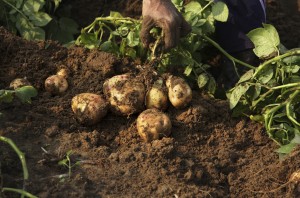
Healthy soil brings forth healthy fruit.
However, if the soils are used gently and are stimulated, and if these soils are situated in a diverse environment landscaped in a species-rich way, then they will provide man and animal with everything that is needed.
In most cases humans are not aware of the connection between the soil and our nutrition, water, climate and biodiversity, and life. This is the reason why healthy soils and natural agriculture are important themes for The World Foundation for Natural Science and its teaching activity. On an international level it has also been recognised that soil and life in the soil are of critical importance for global food production (FAO-director José Graziano da Silva, 4.12.2014, World Soil Day, Rome) and this is important for our survival. In order to further this awareness, the FAO declared last year, 2015 the year of soils. Therefore, The World Foundation for Natural Science has put together a factsheet that shows how life in the soil is connected and gives tips for the proper handling of our soils. On that note we recommend to you the 2014 documentary “Symphony of the Soil”, which was officially part of the UN-International Year of Soils. Please have a look at the trailer of this wonderful film below.
Publications
Film
Today’s industrialised agriculture creates sheer “agricultural deserts” through the wrong maxim of “Ever bigger, ever faster, ever cheaper”. But healthy soils and the pure drinking water filtered through them form the basis of all life. Only the small, flexible, local, rural agriculture possesses the corresponding sustainable solutions in order to help the soils recover. For example, climate farming with biochar: It increases the humus content and thus the fertility of the soil and in this way positively influences the soils, water, climate and foods – in short, the entire ecosystem.
Film
Compost that is richly permeated with living micro-organisms, becomes the source of life for vegetables, fruits, cereals and crops. It makes them resistant, prevents the absorption of radioactive radiation in root vegetables, and increases harvest yields.
In this presentation, the correct procedure of composting is explained step by step. Those who cannot make compost themselves, still have the possibility to achieve good results with compost extracts. Learn how you can use simple tools to check the food quality by yourselves.
Film
Around the world the soil is in a disastrous condition, caused by industrialization and senseless use of pesticides. Predominantly profit-oriented and short-sighted thinking puts the soil Earth, the most significant foundation for our lives, not only at risk, but to a great extent it has already been lost. You are going to learn of solutions as to how each of us individually and we as a society in general can contribute to the soil’s ability to regenerate and also to produce “real food for life”.










